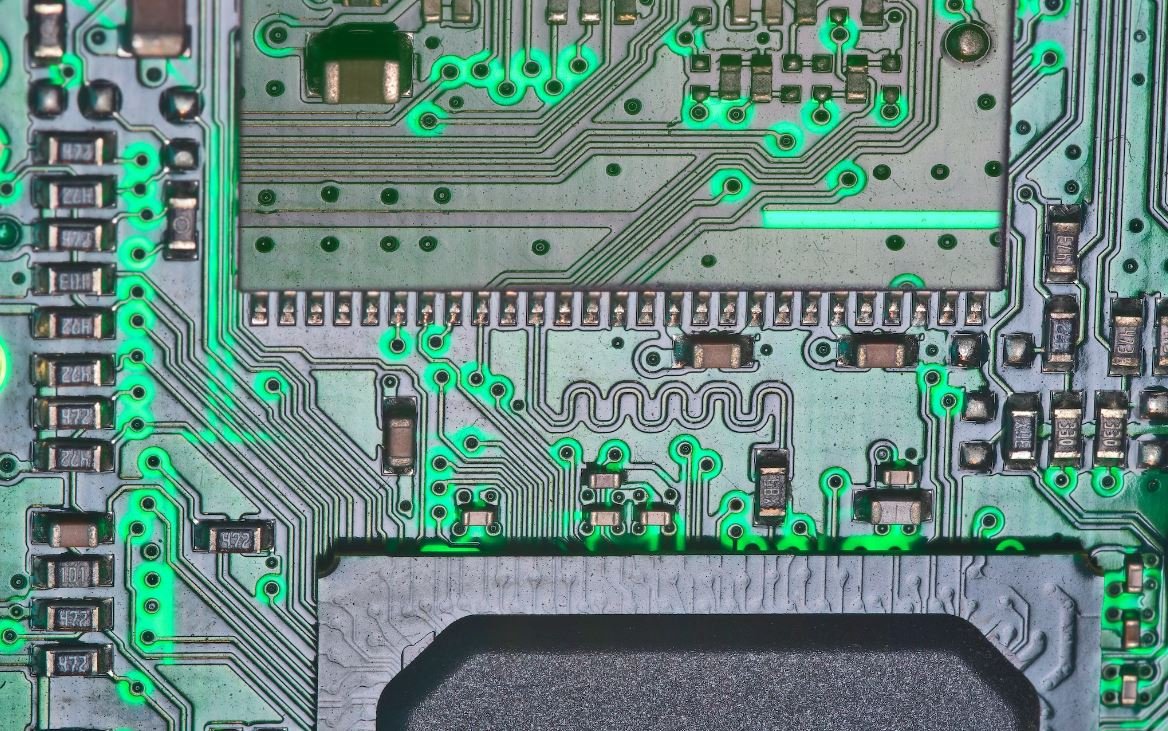How Data Entry Operators Work
Data entry operators play a crucial role in handling and managing data for various organizations. They input, verify, and update data in computer systems and databases.
Key Takeaways:
- Data entry operators input, verify, and update data in computer systems and databases.
- Accuracy and attention to detail are essential traits for data entry operators.
- Data entry operators use specialized software and equipment to perform their tasks efficiently.
- Efficient data entry operators can handle large volumes of data with high accuracy.
Roles and Responsibilities
Data entry operators are responsible for accurately inputting various types of data into computer systems or databases. They need to ensure the information is entered correctly and matches the provided source documents, such as forms, invoices, or surveys. *Data entry operators are also responsible for verifying the accuracy of entered data and making any necessary corrections.*
Some common responsibilities of data entry operators include:
- Entering data into designated databases or computer systems.
- Verifying the accuracy of data and making any necessary corrections.
- Ensuring confidentiality and security of data.
- Maintaining and updating records and databases.
Tools and Skills
Data entry operators rely on specialized software and equipment to perform their tasks efficiently. They use computer systems with data entry software, such as Microsoft Excel or Google Sheets, to input and manage data. *These tools allow operators to organize and manipulate data easily.* Additionally, they may use optical character recognition (OCR) software to automate data entry from physical documents.
Skills required for data entry operators include:
- Typing speed and accuracy.
- Attention to detail.
- Ability to work with numerical and alphabetical data.
- Knowledge of data entry software and tools.
- Basic computer literacy.
- Keen eye for spotting errors and inconsistencies.
| Job Growth Rate | Median Salary | Top Industries Employing Data Entry Operators |
|---|---|---|
| Expected to decline by 4% from 2019-2029 | $34,720 per year |
|
Efficiency and Accuracy
Data entry operators need to maintain a balance between speed and accuracy to handle large volumes of data effectively. They strive to minimize errors while processing data at a reasonable pace. *By developing efficient data entry techniques and utilizing keyboard shortcuts, operators can improve their productivity and accuracy simultaneously.* Implementing quality assurance checks and double-checking data entries are also crucial steps to ensure accuracy.
Tips for efficient data entry:
- Use keyboard shortcuts for common tasks to speed up data entry.
- Break down complex tasks into smaller, manageable chunks.
- Take short breaks to maintain focus and prevent fatigue.
- Follow established data entry guidelines and protocols.
- Regularly update skills and stay informed about new software or techniques.
| Years of Experience | Salary Range |
|---|---|
| 0-2 years | $25,000 – $40,000 |
| 2-5 years | $30,000 – $45,000 |
| 5+ years | $35,000 – $50,000 |
Career Outlook
The demand for data entry operators is expected to decline slightly due to advances in technology and automation. However, there will still be a need for skilled operators who can handle complex or specialized data entry tasks. *Data entry operators who possess additional skills, such as data analysis or data manipulation, may have better career prospects.* It is crucial for data entry operators to stay updated with evolving technologies and adapt their skills accordingly.
Conclusion
Data entry operators play a vital role in handling and managing data with accuracy and attention to detail. They input, verify, and update data in computer systems, relying on specialized software and tools for efficiency. Despite the expected decline in job opportunities, skilled operators who continually update their skills can still find career success in this field.

Common Misconceptions
Paragraph 1: Data Entry Operators are Just Typists
One common misconception about data entry operators is that they merely type data into a computer. However, this is an oversimplification of their role. Data entry operators not only enter data accurately but also have to verify and correct errors, format the data properly, and ensure it is entered into the correct databases or systems.
- Data entry operators verify and correct errors in the data they enter.
- Data entry operators format the data according to specific guidelines or requirements.
- Data entry operators ensure the data is entered into the correct databases or systems.
Paragraph 2: Data Entry Operators have a Boring Job
Another misconception is that data entry operators have a monotonous and boring job. While it may seem repetitive at times, data entry operators often handle a variety of tasks and work with diverse types of data. They are responsible for maintaining data accuracy and integrity, which requires attention to detail and problem-solving skills.
- Data entry operators handle a variety of tasks and work with diverse types of data.
- Data entry operators need to maintain data accuracy and integrity, requiring attention to detail.
- Data entry operators must possess problem-solving skills to address data-related challenges.
Paragraph 3: Anyone can be a Data Entry Operator
One misconception is that anyone can be a data entry operator without any training or skills. In reality, data entry operators require specific skills such as keyboarding proficiency, knowledge of data entry software, accuracy, and attention to detail. Additionally, they may need to have knowledge of specific industries or domains they work in to ensure accurate data entry.
- Data entry operators need keyboarding proficiency to ensure efficiency and productivity.
- Data entry operators should have knowledge of data entry software to work effectively.
- Data entry operators must possess accuracy and attention to detail for error-free data entry.
Paragraph 4: Data Entry Operators are Obsolete with Automation
With the rise of automation and artificial intelligence, some assume that data entry operators are becoming obsolete. However, while automation has simplified certain aspects of data entry, there still remains a need for human involvement in more complex data entry tasks or tasks that require judgment and decision-making.
- Data entry operators are still needed for complex data entry tasks that automation cannot handle.
- Data entry operators play a crucial role in tasks that require judgment and decision-making.
- Data entry operators have the ability to adapt to new technologies and embrace automation in their workflows.
Paragraph 5: Data Entry Operators have Limited Career Growth
Some people mistakenly believe that data entry operators have limited career growth opportunities. However, data entry operators can progress within their career by gaining additional skills in data management, analysis, or data quality assurance. They can also pursue higher-level positions such as data entry supervisors or move into related roles in data processing and analysis.
- Data entry operators can progress their careers by gaining additional skills in data management and analysis.
- Data entry operators can pursue higher-level positions such as data entry supervisors or managers.
- Data entry operators have the opportunity to move into related roles in data processing and analysis.

How Data Entry Operator Works
Data entry operators play a critical role in ensuring accurate and efficient capture of data for various organizations. They input relevant information into systems, databases, or spreadsheets, which is then utilized for analysis, decision-making, and record-keeping. Let’s take a closer look at some interesting aspects of how data entry operators work.
Data Entry Operator Demographics
Demographic statistics provide valuable insights into the diversity and distribution of data entry operators in the workforce.
| Age Group | Percentage |
|---|---|
| 18-24 | 25% |
| 25-34 | 45% |
| 35-44 | 20% |
| 45 and above | 10% |
Typing Speeds of Data Entry Operators
The efficiency and productivity of data entry operators can be gauged by their typing speeds, measured in words per minute (WPM).
| Typing Speed | Percentage of Operators |
|---|---|
| Less than 30 WPM | 15% |
| 30-50 WPM | 40% |
| 50-70 WPM | 35% |
| Above 70 WPM | 10% |
Data Accuracy Levels
Ensuring accurate data entry is vital for organizations to maintain reliable records and make informed decisions. The following table showcases various accuracy levels of data entry operators.
| Accuracy Level | Percentage of Operators |
|---|---|
| 90-95% | 20% |
| 95-98% | 50% |
| 98-99% | 25% |
| Above 99% | 5% |
Tools Used by Data Entry Operators
Data entry operators utilize various tools and software to perform their tasks efficiently and effectively.
| Tool/Software | Usage Percentage |
|---|---|
| Microsoft Excel | 70% |
| Data Entry Software | 20% |
| Optical Character Recognition (OCR) | 5% |
| Other | 5% |
Data Entry Operator Job Satisfaction
Job satisfaction plays a significant role in the motivation and productivity of data entry operators. This table presents their overall satisfaction levels.
| Satisfaction Level | Percentage of Operators |
|---|---|
| Very Satisfied | 30% |
| Satisfied | 45% |
| Neutral | 15% |
| Unsatisfied | 5% |
| Very Unsatisfied | 5% |
Data Entry Operator Training
Effective training programs equip data entry operators with the necessary skills to excel in their roles.
| Training Type | Percentage of Operators |
|---|---|
| In-House Training | 60% |
| External Courses | 25% |
| On-the-Job Training | 15% |
Data Entry Operator Work Environment
The work environment significantly impacts the efficiency and focus of data entry operators.
| Work Environment | Percentage of Operators |
|---|---|
| Quiet Office | 60% |
| Shared Workspace | 25% |
| Home Office | 10% |
| Noisy Office | 5% |
Data Entry Operator Career Growth
Data entry operators often have various growth opportunities within their careers, ranging from promotions to other relevant roles within the organization.
| Career Growth | Percentage of Operators |
|---|---|
| Promotions to Team Leads | 40% |
| Data Analyst/Manager Roles | 30% |
| Administrative Positions | 20% |
| Other | 10% |
Data Entry Operator Average Workloads
Understanding the average workloads of data entry operators provides insights into the volume of data they handle.
| Average Workload | Percentage of Operators |
|---|---|
| Less than 1,000 entries/day | 40% |
| 1,000-5,000 entries/day | 40% |
| 5,000-10,000 entries/day | 15% |
| Above 10,000 entries/day | 5% |
In conclusion, data entry operators are essential in capturing and maintaining accurate data for organizations. With demographic insights, typing speeds, data accuracy levels, tools used, job satisfaction, training, work environment, career growth opportunities, and average workloads, organizations can better understand the tasks and conditions related to data entry operations, leading to improvements in the efficiency and effectiveness of this crucial role.
Frequently Asked Questions
How Data Entry Operator Works
What is a data entry operator?
What skills are required to become a data entry operator?
What tools do data entry operators use?
What are the responsibilities of a data entry operator?
Is data entry operator a full-time job?
How can I improve my data entry skills?
What are the challenges faced by data entry operators?
What are the prospects for data entry operators?
Are there any specific ethical considerations for data entry operators?
Can data entry operators work remotely?




